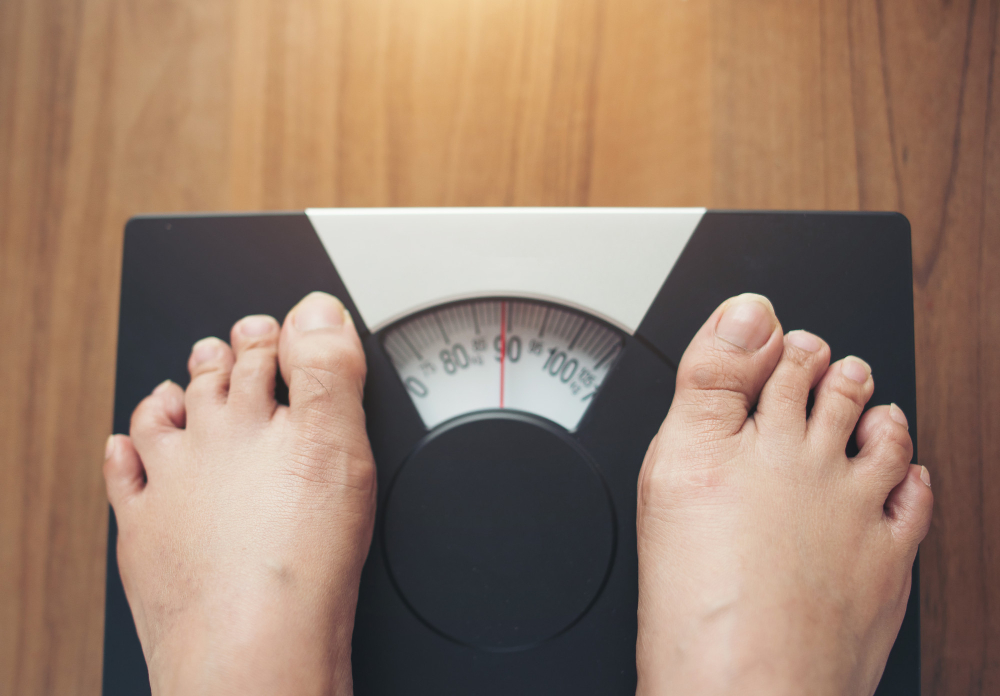Ayurveda for Obesity
So far, all advertisements were about weight gain. And today? Many of us are searching for means by which to lose weight. People nowadays state that they do not lose weight despite exercising and starving.

What is Obesity
Obesity, also called corpulence or fatness is a complex disease that occurs when there is excess fat in the human body.
Obesity in Ayurveda
Obesity has been described as Sthoulya or Medhoroga in Ayurveda. According to Acharya Charaka, too obese and too lean are the most undesirable qualities because obese people will inherit eight defects which are short lifespan, constricted limited movement, impotence, debility, emit a foul smell, profuse sweating, and excessive hunger and thirst.
Who is Obese?
A person whose weight is higher than their ideal weight is defined as being overweight or having obesity. In other words, if a person weighs 20% more than their ideal weight, they are traditionally considered obese. That ideal weight must take into account the person’s height, age, sex, and build.
How do we calculate Obesity?
A body mass index (BMI) is a useful and easy means to measure overweight and obesity.
How is BMI Calculated
To calculate BMI, just divide your weight in kilograms by your height squared in meters or, divide your weight in pounds by your height in inches squared and multiply by 703.
| BMI | Class |
| Below 18.5 | Underweight |
| 18.5-24.9 | Normal |
| 25.0-29.9 | Overweight |
| 30.0 and higher | Obesity |
Causes (Nidana)
Calories
The calories contained within the food we tend to eat provide the body with the energy it needs. However, accumulating more than a certain number of calories can lead to physical problems and obesity.
Dietary cause (Aharaatmaja Nidana)
Obesity isn’t one thing that occurs overnight. Frequent changes in daily lifestyle and diet, such as overeating, having high quantities of fast food, alcohol consumption, drinking too many sugary drinks, etc. cause obesity.
Physical inactivity (Avyayama)
The absence of physical exercise is another vital factor related to obesity. Exercising frequently for at least a quarter-hour can facilitate the body to kill excess calories and control health problems, moreover obesity.
Genetics (Beejadosha)
Research shows that genetics performs a role in obesity. Some people have genes that make it difficult for them to lose weight. Genes can directly cause obesity in such disorders as Prader-Willi syndrome.
Medical Reasons
In some cases, underlying medical conditions such as underactive thyroid (where your thyroid gland does not produce enough hormones), Cushing syndrome (a disorder that causes the over-production of steroid hormones), polycystic ovary syndrome (PCOS), etc may contribute to weight gain.
Psychological (Manasa Nidana)
Constant Cheerfulness
Freedom from anxiety to any work
Comfortable mind
Lifestyle Factors (Vihaaraatmaja Nidana)
Lack of physical exercise
Abstinence from sexual indulgence
Day time sleep
Lying on a bed or couch for a longer period
Sitting for a long time
Complications (Upadrava)
- Heart disease and Stroke (Hrrdroga & pakshagata)
- Blood pressure (Rakthadimarda)
- Cholesterol (Medoroga)
- Type 2 diabetes (Prameha)
- Certain cancers (Arbuda)
- Fatty liver disease (Yakrit Roga)
- Gynecological and sexual problems (Prasoothi and Streeroga)
- Digestive problems (Udara Roga)
Symptoms (Roopa)
- Excessive hunger (Atikshudha)
- Excessive sleep (Nidraadikhyam)
- Excessive Thirst (Atipippasa)
- Less enthusiasm (Utsaaha haani)
- Profuse sweating with foul body odor (Swedaabhaatam)
- Breathlessness on exertion (AayasenaShwaasam)
- Body pain (Gaatrasaadham)
Treatment (Chikitsa)
(Under the strict guidance of Registered Ayurvedic Physician)
Shamana (Palliative) treatment:
- Fasting (Langhan)
- Oral use of digestives to augment the fat metabolism (Ama pachan)
- Dry medicated powder massage (Ruksha Udwartan)
- Heavy and low chronic diet/items like Honey, salad, etc are advised.
- Physical exercises, mental work is also recommended.
Samshodhana Chikitsa (Purificatory procedures):
- Panchakarma
- Therapeutic emesis (Vaman)
- Therapeutic purgation (Virechan)
- Lekhan vasti (Medicated enema) is advised for the management of Sthaulya.
- Single drugs: Guduchi, Vidanga, Musta, Sunthi, Amla, Vaca, Daruharidra, Guggulu, etc.
- Compound Formulations: Trikatu, Navak Guggulu, Triphala Guggulu, Vidangadi Churna, Takrarishta, Navayasa lauha, Arogya Vardhini Vati etc.
Prevention Tips
- Follow Healthy Diets
- Exercise regularly
- Take more proteins to relieve hunger pangs
- Engage in regular aerobic exercise
- Cut down on sweet foods
- Eat more servings of vegetables and fruits
- Avoid sedentary habits.
- Avoid excessive sleep.
- Do not have food while watching TV
- Quit Drugs, Alcohol, and Smoking
- Monitor your weight regularly



